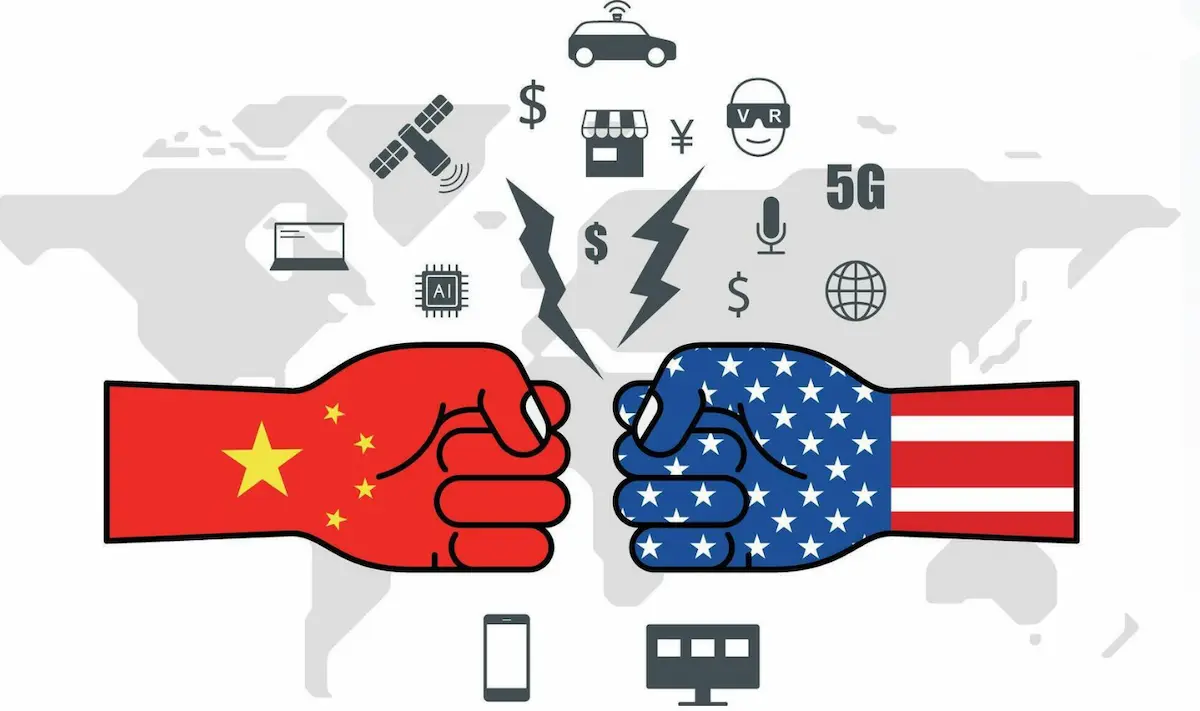Washington, D.C., is once again the epicenter of global economic discourse. In 2025, President Donald Trump reignited the trade war flame, introducing sweeping new tariffs on Chinese, European, and Mexican imports. Unlike in his first term, the political fallout is unfolding in a dramatically altered landscape—with a divided Congress, louder think tanks, and a looming 2026 midterm election poised to reshape the nation’s legislative balance. Explore how U.S. political forces—from Capitol Hill to K Street—are shaping the tariff narrative amid growing economic tension and the 2026 midterm election countdown.
As industries scramble to manage disrupted supply chains and consumers brace for price hikes, the real battle over tariffs is being waged inside the Beltway—through hearings, lobbying blitzes, white papers, and campaign trail messaging.
This blog dives deep into how Congress, K Street lobbyists, policy think tanks, and public sentiment are influencing the direction of U.S. trade policy. We explore real-time political developments, the role of money in the debate, partisan divides, and conclude with strategic reflections from Mattias Knutsson, a global procurement authority, on the long-term implications of politicized trade.
The Tariff Narrative Legislative Landscape: Who Holds the Cards?
Key Players in 2025 Trade Policy Power Struggle
| Entity | Political Stance | Current Role |
|---|---|---|
| White House | Pro-tariff | Executive orders driving policy |
| Senate | Republican majority (52–48) | Generally supportive, with moderate dissent |
| House of Representatives | Democrat majority (219–216) | Critical of tariffs, advocating for checks |
| U.S. Trade Representative (USTR) | Robert Lighthizer | Chief architect of tariff strategy |
| Ways and Means Committee | Mixed leadership | Primary legislative body for trade bills |
Recent Legislative Moves
- April 2025: Senate Republicans blocked a bill that would limit presidential authority on tariffs.
- March 2025: House Democrats passed the “Trade Oversight and Stability Act,” seeking congressional approval for future tariffs. It awaits Senate action.
- Bipartisan caucus led by Senators Mitt Romney (R-UT) and Chris Coons (D-DE) formed the “Fair Trade, Strong Supply Chains Caucus.”
K Street Mobilizes: Lobbying Activity in Overdrive
As tariff policy reshapes industries overnight, lobbyists have flooded Capitol Hill to defend sectoral interests.
Top Sectors by Lobbying Spend on Tariff Issues (Q1 2025)
| Sector | Lobbying Spend (USD) | % Change YoY |
|---|---|---|
| Retail | $42 million | +41% |
| Tech | $39 million | +34% |
| Auto | $28 million | +27% |
| Agriculture | $18 million | +30% |
| Pharma | $15 million | +18% |
Major Lobbying Organizations in Play
- U.S. Chamber of Commerce: Leads opposition, arguing tariffs cost U.S. jobs and GDP.
- Retail Industry Leaders Association (RILA): Advocates for phased implementation and tariff relief programs.
- National Association of Manufacturers (NAM): Split membership—some push for domestic incentives, others seek global engagement.
- Heritage Foundation: Supports tariffs as a tool of economic sovereignty and national defense.
“We’ve shifted lobbying strategy from just Capitol Hill visits to full public campaigns—TV, social media, podcasts,” said a RILA executive in April.
Think Tanks and the Ideological Divide
Policy analysis and public narratives around tariffs are being heavily shaped by Washington’s leading think tanks, often aligned with political ideologies.
Major Players and Their Positions
| Think Tank | Stance | Key Message |
|---|---|---|
| Heritage Foundation | Pro-tariff | “National economic strength comes from self-reliance.” |
| Cato Institute | Anti-tariff | “Tariffs are taxes on Americans, not foreign governments.” |
| Brookings Institution | Critical | “Tariffs cause market volatility and alienate allies.” |
| Center for Strategic & International Studies (CSIS) | Mixed | “Use tariffs selectively for strategic leverage.” |
In April 2025, Brookings and Cato co-hosted a bipartisan forum, warning that “unchecked tariff power undermines the global rules-based trade system.”
Meanwhile, the Heritage Foundation released a counter-paper titled “Reclaiming American Production: Tariffs for Sovereignty.”
Hearings, Headlines, and Hashtags: Congressional Discourse
Congress has been anything but quiet. Between January and April 2025, there were:
- 7 public hearings on tariffs (Senate Finance, House Ways & Means)
- 3 closed-door briefings with intelligence and trade agencies
- Over 100 floor speeches referencing tariffs
Notable Exchanges:
- Senator Elizabeth Warren (D-MA):
“These tariffs are a blunt instrument that hurt workers, not help them.” - Senator Josh Hawley (R-MO):
“The American supply chain should be made in America—not Beijing.” - Representative Mike Gallagher (R-WI):
Pushed for semiconductor self-sufficiency and trade strategy with Taiwan.
Public Opinion (April 2025 Poll – Pew Research):
| Question | Result |
|---|---|
| Do you support tariffs on Chinese goods? | 48% Yes / 42% No / 10% Unsure |
| Should Congress have more power over trade policy? | 61% Yes |
| Are tariffs raising your cost of living? | 71% Yes |
The 2026 Midterms: Trade Policy as a Campaign Issue
With the House and 34 Senate seats up for grabs in 2026, trade has become a flashpoint issue—especially in swing states.
Battleground States & Trade Messaging:
| State | Party Control | Voter Concerns |
|---|---|---|
| Pennsylvania | Split | Steel jobs, car prices |
| Wisconsin | Republican | Agricultural exports |
| Arizona | Democrat | Retail supply chains |
| Michigan | Toss-up | Auto sector manufacturing |
Campaign Ad Trends (March–April 2025):
- Over $22 million spent on trade-related messaging.
- Republican messaging: “Trump’s tariffs are bringing back American jobs.”
- Democrat messaging: “These tariffs are a tax on working families.”
“If you’re in a Rust Belt district, you’re walking a fine line—supporting fair trade without triggering cost-of-living backlash,” said a DCCC strategist.
The Power of Public Sentiment: A Two-Edged Sword
Public opinion is divided but becoming increasingly vocal. Tariffs that once symbolized strength are now associated with price inflation, product shortages, and economic unease.
Top Concerns from Small Business Owners (NFIB Survey, April 2025)
| Concern | % Cited |
|---|---|
| Higher supplier costs | 68% |
| Inventory delays | 41% |
| Reduced consumer spending | 36% |
| Complex compliance paperwork | 21% |
Social media movements like #TariffTax and #MadeinAmericaNow are gaining traction, pulling the conversation both left and right.
Executive Branch vs. Legislative Pushback: The Power Struggle
The balance of trade authority is a constitutional gray area. While the President has broad powers under the Trade Expansion Act of 1962 and Section 301 of the Trade Act of 1974, Congress is increasingly attempting to reclaim its role.
Key Proposals in Play:
- The Congressional Trade Authority Act (CTAA): Would require Congressional approval of any tariff lasting more than 120 days.
- Tariff Transparency and Oversight Act: Mandates public cost-impact assessments prior to implementation.
Both bills have bipartisan sponsors, but face potential veto threats from the White House.
“This isn’t just about trade—it’s about constitutional checks and balances,” said Senator Tim Kaine (D-VA).
Business Leaders and Corporate Campaigns
Corporate America is no longer quiet. Major CEOs and business coalitions are now directly engaging in the narrative.
Notable Corporate Statements (Q1 2025):
- Apple CEO Tim Cook: Warned that tariff costs will be passed to consumers by Q3 2025.
- Walmart President John Furner: Called for “multi-stakeholder forums” on trade.
- Ford and GM have shifted public messaging from “reshoring wins” to caution about supplier volatility.
The Business Roundtable has proposed the creation of a Public-Private Trade Advisory Council, composed of Congressional leaders and corporate stakeholders.
Mattias Knutsson on Political Procurement Risk
Mattias Knutsson, a renowned global procurement strategist, argues that the growing politicization of trade must be factored directly into business strategy—not treated as a background variable.
In a speech to the Global Business Policy Forum (April 2025), Knutsson made the case for:
“Procurement intelligence that doesn’t include Washington analysis is incomplete intelligence. Every sourcing decision is now a political one.”
Knutsson’s Policy-Aware Procurement Framework:
| Step | Strategic Focus |
|---|---|
| 1. Legislative Monitoring | Weekly impact assessments based on Capitol activity |
| 2. Trade Advocacy Alignment | Engage with lobby groups representing industry clusters |
| 3. Risk Budgeting | Allocate reserves for politically-driven cost spikes |
| 4. Geo-diversified Sourcing | Minimize exposure to politically volatile corridors |
He concluded by stating:
“The line between Washington and the warehouse floor has blurred. Procurement teams must evolve beyond spreadsheets and into strategic policy think tanks of their own.”
Conclusion:
The 2025 tariff debate has evolved far beyond economic policy—it is now deeply embedded in the U.S. political and electoral fabric. As think tanks wage ideological battles, lobbyists flood Capitol Hill, and voters weigh inflation against nationalism, the story of tariffs is being written not just in factories and ports, but in hearing rooms, campaign rallies, and social media feeds.
The 2026 midterms could reshape how much power future presidents have over trade. They may also determine whether the U.S. re-engages in global partnerships—or continues down a path of protectionism.
In the meantime, as Mattias Knutsson rightly notes, businesses must adapt procurement strategies to politics, not just prices. The companies—and countries—that do will navigate the chaos. Those that don’t may find themselves victims of a policy-driven recession.
More related Posts:





